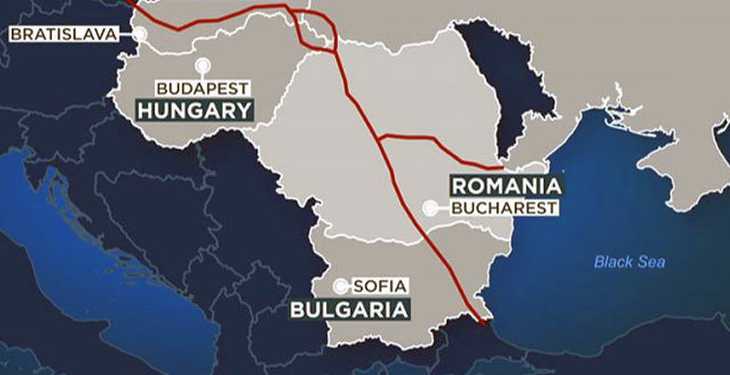Bulgaria has halted gas transfers to Romania, following a similar measure taken by Bucharest for the export of electricity, in spite of the request of the Sophia-based government.
Bulgarian gas did not reach Romanian pipes during Tuesday, according to Romanian Digi 24 tv station. Previously, Bulgaria has made a request for the urgent supply of electricity from neighbouring Romania. But Bucharest refused, as consumption has peaked in both countries under unusually fierce winter conditions, according to Euractiv.com.
Bulgaria demanded electricity supplies from Romania on January 9, but the request was denied, Bulgarian media quoted Romanian officials as saying.
Problems in the electricity distribution system, linked to harsh weather conditions and increased power consumption, prompted the government to make the request, according to Bulgarian National Television.
Asked why the gas imports through the Giurgiu-Ruse pipeline din not start on Tuesday, as it was established, Romanian Minister of Energy Toma Petcu mentioned some problems related to how the works were executed.
“The gas import from Bulgaria is realised through the Giurgiu-Ruse interconnector, and the import capacity is insignificant compared to the amounts that we consume. There are problems related to the implementation of the works, and people from Transgaz have solutions and they will probably solve it very soon”, said Petcu, quoted by Agerpres.
He insisted that the delay has nothing to do with his statement on Monday, on the fact that Romania has refused a request from Bulgaria to deliver more power south of the Danube. Asked if there was any reaction to this statement, the minister replied: “I had no reaction to this statement, because such things are normal in a collaboration. I explained to our Bulgarian partners and they understood.”
Romania has exported power to Hungary, where spot prices grew to almost double the Romanian amount.
According to the Romanian OPCOM market operator, Romanian capacity was fully booked to Hungary, since prices in Romania reached about 50-70 euro per MWh, and the Hungarian prices were up to about 120-140 euro per MWh, according to the local press.

